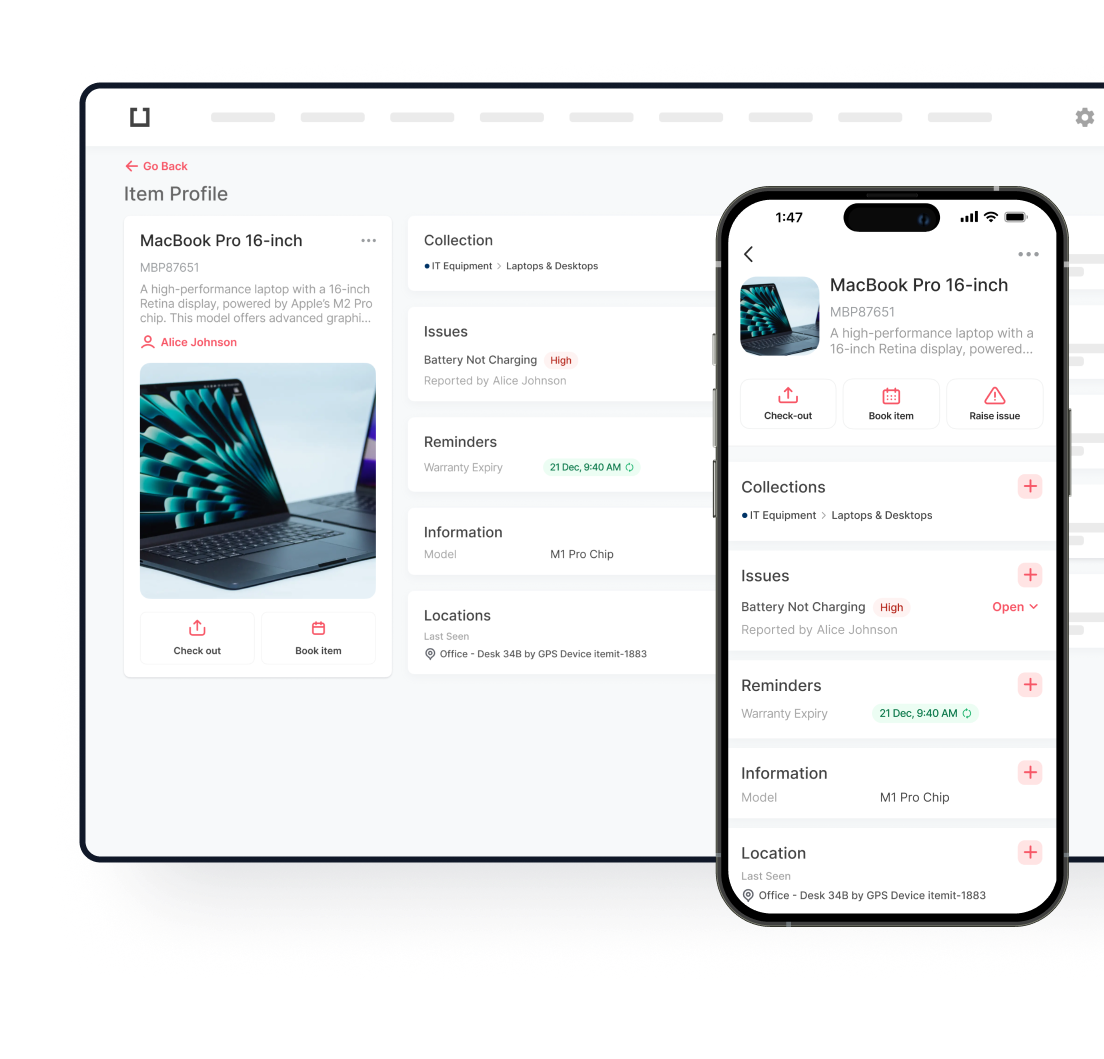
IT asset management gives your business significantly more visibility over your IT resources and assets. This means that you can make multiple efficiency and productivity improvements.
Transparency over what assets your business owns, where they are, and who is using them gives you more power over your assets and, therefore, saves you time and money.
Fewer Lost Assets & Duplicate Purchases
When you use IT asset management operations, you gain a better view of your assets. This means that your decisions are better-informed as you have helpful data in front of you that you can use.
If your IT assets are logged in an IT asset management software, for example, you have access to a readily available and very human-readable IT asset register.
This IT asset register gives you the ability to search for which assets your business already owns. Then, you can pinpoint where these assets are to retrieve them and prevent lost money on duplicate purchases.
More Accountability Over IT Assets
The ability to use IT asset register software and asset tracking principles gives you the ability to improve your business’ accountability when it comes to assets.
Having a clear view of what your assets are and the ability to add data to them separates them from being simple rows and columns on a list. Instead, your asset profiles bring your assets to life, showing your team that each asset is unique and critical to your business.
Then, you can log critical information such as who is responsible for which of your assets. This, in turn, increases asset accountability and gives you a neat and tidy audit trail for whenever you need it.
Using assignee features also means that you can run audits with your colleagues by viewing who has what and manage and export reports with this data. So, for example, if somebody hands in their notice, finding out which assets you need to retrieve is a quick and simple process.
Helpful IT Asset Management Features
IT asset management software comes with a wide range of helpful features and functionality, too. For example, you’ll be able to use asset tags to speed up your auditing and asset tracking operations.
You can link these physical tags, such as QR codes or barcodes to your assets, then use these codes to contribute to your tracking operations. This is as, every time you scan an asset’s tag, a few things happen:
- The last seen location updates
- The time of the scan updates
- The user who scanned the tag is logged
- The asset’s profile opens, ready for edits
This means that if one of your colleagues needs to report an issue on a laptop, for example, the process is simply: scan and click “report”. Then, your maintenance team gets a transparent view of which asset has an issue, where the asset is, who reported the issue and what the issue is.
Using Your IT Asset Register
Your IT asset register is a critical tool for your business to leverage. This is as your business will likely be run using IT assets, such as laptops, computers and software.
Therefore, owning an IT asset register ultimately gives you visibility over asset costs, status, and usage. This means that you can pinpoint inefficiencies and monitor how well your assets are getting used.
Tracking the assets that help your business is essential as otherwise, you have no visibility over potential performance improvements or risks. This expands further, too.
With itemit, you can expand IT asset management operations into fixed asset management capabilities. As you need to track and manage as many of your business’ assets as possible, the system remains flexible and customisable no matter what you need to track.
To find out more about itemit, you can contact the team at team@itemit.com or fill in the form below to start your very own 14-day free trial.

Try itemit
Choose a better way to track
your assets.
Start your free 14-day trial now!

Keep Learning
itemit Blog
Tips, guides, industry best practices, and news.
PUWER Equipment Compliance: What’s Covered and Required
Discover what equipment is covered by PUWER, why it matters for workplace safety, and how compliance ensures effective asset management. Read more!
What are PUWER regulations and How They Impact Asset Tracking?
Discover PUWER regulations, their importance for workplace safety, and how they affect asset tracking systems. Ensure compliance and manage assets effectively!
Mastering Asset and Configuration Management: A Guide for Effective Asset Tracking
Learn how asset and configuration management enhance tracking efficiency, streamline processes, and improve asset visibility in your organization.



